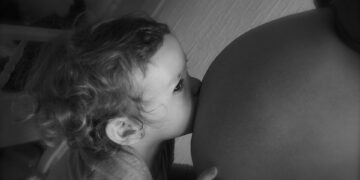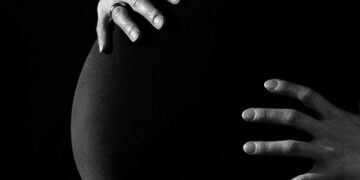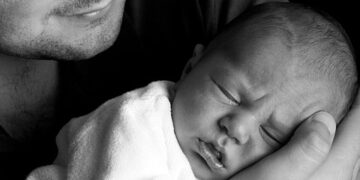Spotting the Signs: Understanding Newborn Jaundice Symptoms
As a new parent, it’s natural to be concerned about your newborn’s health. One common condition that affects many newborns is jaundice. Jaundice is a condition in which a baby’s skin and eyes appear yellow due to elevated levels of bilirubin in the blood. Understanding the symptoms of newborn jaundice is important for early detection and treatment. In this article, we will discuss the signs of newborn jaundice and what you can do if you suspect your baby may have this condition.
What Causes Newborn Jaundice?
Newborn jaundice occurs when a baby’s liver is not fully developed and is unable to efficiently process bilirubin, a yellow pigment that is formed when red blood cells break down. Bilirubin is normally processed by the liver and excreted in the stool. However, in newborns, the liver may not be mature enough to handle this process effectively, leading to a buildup of bilirubin in the blood.
In some cases, newborn jaundice may also be caused by other factors, such as blood type incompatibility between the mother and baby, an infection, or an underlying liver condition. It’s important to consult with your pediatrician if you notice any signs of jaundice in your newborn.
Common Symptoms of Newborn Jaundice
One of the most common signs of newborn jaundice is yellowing of the skin and eyes. This yellow discoloration typically starts on the face and then spreads to the chest, abdomen, and extremities. In some cases, the yellowing may be more noticeable in natural light or under fluorescent lighting.
Other symptoms of newborn jaundice may include:
- Pale stools
- Dark urine
- Irritability
- Poor feeding
- High-pitched crying
If you notice any of these symptoms in your newborn, it’s important to contact your pediatrician right away. They will be able to perform a physical examination and may order blood tests to measure the levels of bilirubin in your baby’s blood.
Treatment Options for Newborn Jaundice
In most cases, newborn jaundice is a mild and temporary condition that does not require treatment. However, if your baby’s bilirubin levels are high or continue to rise, your pediatrician may recommend treatment to lower the levels of bilirubin in the blood.
One common treatment for newborn jaundice is phototherapy, which involves exposing the baby’s skin to special lights that help break down bilirubin. In more severe cases, your baby may need to undergo a blood exchange transfusion to remove excess bilirubin from the blood.
It’s important to follow your pediatrician’s recommendations for treatment and to monitor your baby’s progress closely. Most cases of newborn jaundice resolve on their own within a few days to a week.
Preventing Newborn Jaundice
While newborn jaundice is a common condition that affects many babies, there are some steps you can take to reduce your baby’s risk of developing jaundice:
- Ensure adequate feeding: Breastfeeding your baby frequently can help prevent dehydration and promote the excretion of bilirubin through stool.
- Monitor your baby’s weight: Regular weight checks can help ensure that your baby is getting enough milk and is not becoming dehydrated.
- Keep follow-up appointments: It’s important to attend all scheduled pediatrician appointments so that your baby’s bilirubin levels can be monitored.
By following these tips and staying vigilant for the signs of newborn jaundice, you can help ensure that your baby stays healthy and receives the care they need if jaundice does occur.
Conclusion
Newborn jaundice is a common condition that affects many babies in the first few days of life. Understanding the symptoms of newborn jaundice and knowing what to do if you suspect your baby may have this condition is important for early detection and treatment.
If you notice any signs of jaundice in your newborn, such as yellowing of the skin and eyes, pale stools, or irritability, it’s important to contact your pediatrician right away. Your pediatrician will be able to perform a physical examination and may order blood tests to measure the levels of bilirubin in your baby’s blood.
Most cases of newborn jaundice are mild and temporary and do not require treatment. However, in more severe cases, your baby may need phototherapy or a blood exchange transfusion to lower their bilirubin levels.
By staying informed about the symptoms of newborn jaundice and taking steps to prevent it, you can help ensure that your baby stays healthy and receives the care they need if jaundice does occur.








































